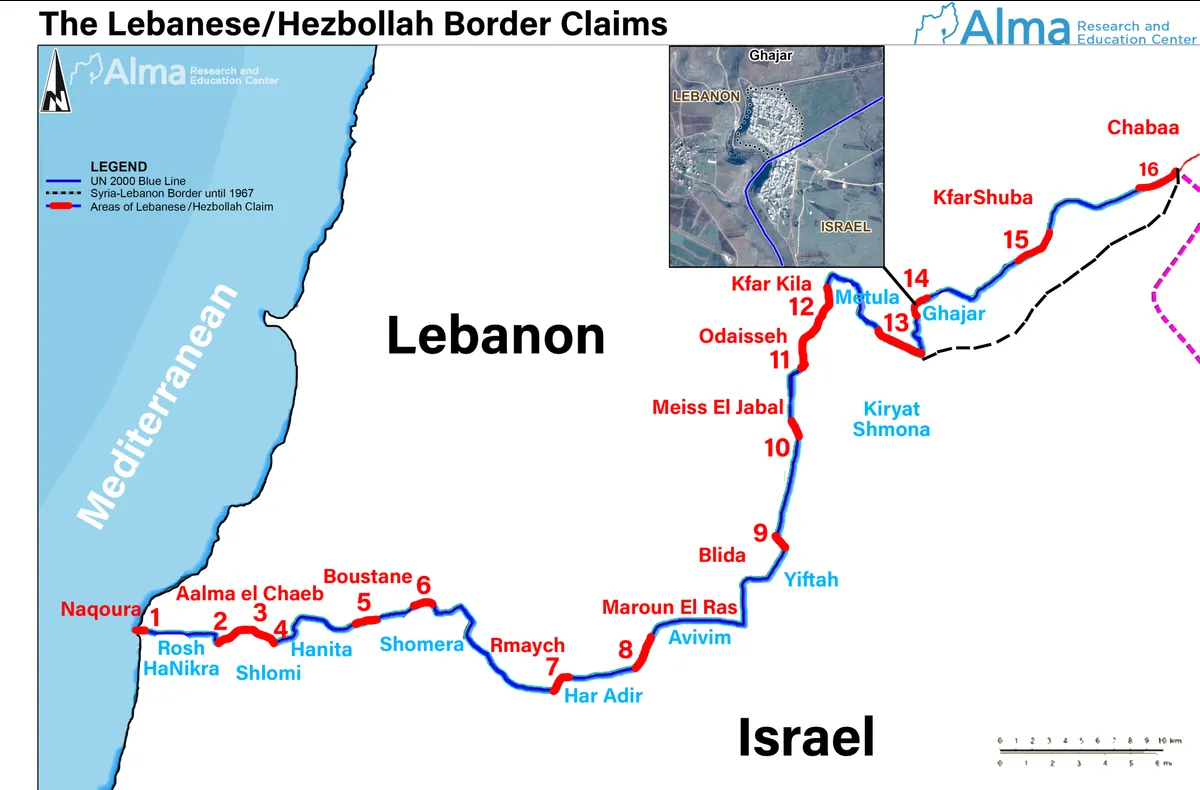In a significant diplomatic move, the United States, France, and several allies have called for an immediate 21-day ceasefire along the Israel-Lebanon border, commonly known as the Blue Line. This initiative comes as the conflict between Israel and the Iran-backed Hezbollah intensifies, raising concerns about a potential wider Middle East war.
Najib Mikati, Lebanon's Prime Minister, has expressed cautious optimism about the possibility of a ceasefire. Mikati, who leads a caretaker administration that includes ministers chosen by Hezbollah, stated, "Hopefully, yes," when asked about the prospects of securing a truce soon. However, he emphasized that the key to implementing any ceasefire lies in Israel's commitment to enforcing international resolutions.
The situation in Lebanon has deteriorated rapidly, with Israeli airstrikes causing significant casualties and displacement. According to the Lebanese health ministry, at least 72 people were killed and 223 wounded in recent attacks. This escalation marks the deadliest period in Lebanon since the end of its 15-year civil war in 1990, which concluded approximately 34 years ago.
The conflict has forced an estimated half a million Lebanese to flee their homes, exacerbating the country's already fragile situation. Lebanon, with a population of about 5.5 million, has been grappling with severe economic crises, including a currency collapse and ongoing challenges with electricity shortages and infrastructure issues.
Jeanine Hennis-Plasschaert, the UN Special Coordinator for Lebanon, has welcomed the call for a ceasefire, emphasizing the need for diplomatic solutions. This aligns with the efforts of the United Nations Interim Force in Lebanon (UNIFIL), which has been present since 1978 to maintain peace along the Blue Line.
Israel's military actions have targeted Hezbollah leaders and hit hundreds of sites deep inside Lebanon. The group, founded in 1985 and considered a terrorist organization by several countries including the United States, has suffered heavy blows, including the assassination of senior commanders and the destruction of thousands of communication devices.
The conflict's impact extends beyond the immediate border region. Lebanon, known for its rich cultural heritage with five UNESCO World Heritage sites, is facing a humanitarian crisis. The country, which gained independence from France in 1943, has a diverse religious makeup and has long been a host to Palestinian and Syrian refugees.
As the international community seeks to de-escalate the situation, the ceasefire proposal aims to create space for diplomatic negotiations. However, the success of these efforts remains uncertain, given the complex geopolitical dynamics and the history of unresolved tensions between Israel and Lebanon, who have never signed a formal peace treaty.
The ongoing conflict serves as a stark reminder of the fragility of peace in the region and the urgent need for sustainable diplomatic solutions to prevent further loss of life and displacement.
"Israel would welcome a ceasefire and preferred a diplomatic solution. Iran was the nexus of violence in the region and peace required dismantling the threat."
As the situation continues to evolve, the international community remains focused on finding a path to peace and stability in this volatile region, where the iconic cedar tree on Lebanon's flag stands as a symbol of resilience amidst ongoing challenges.
